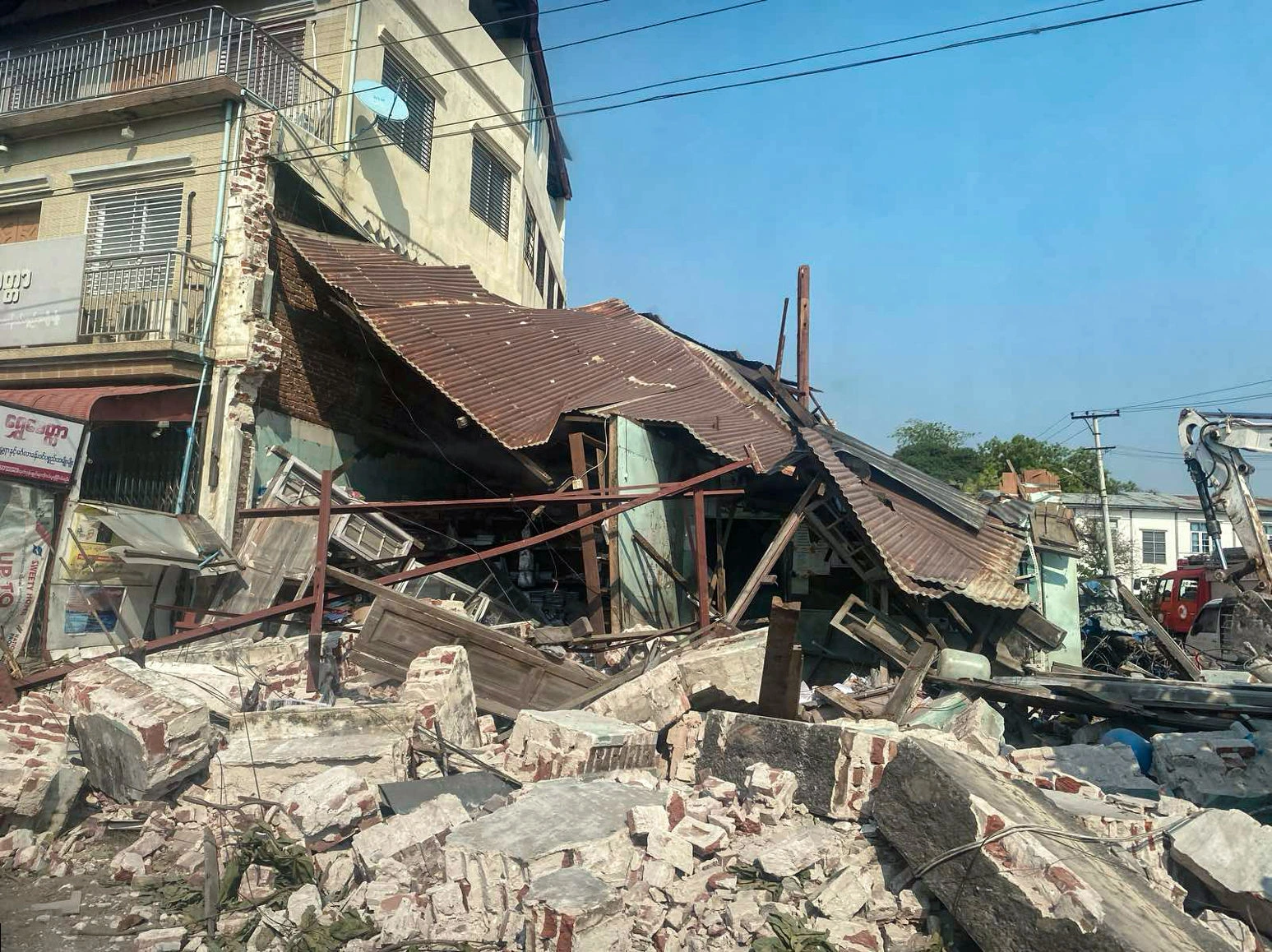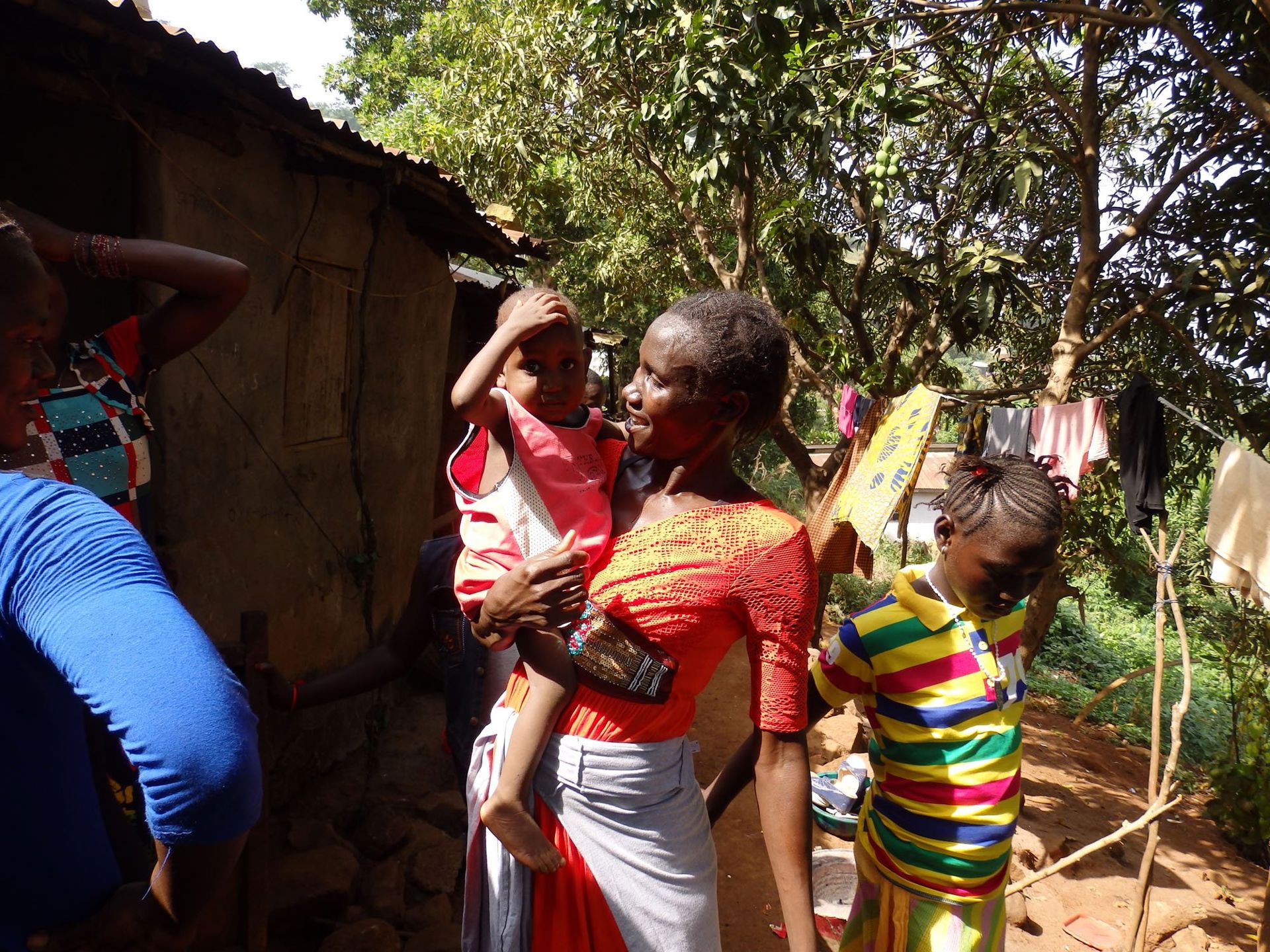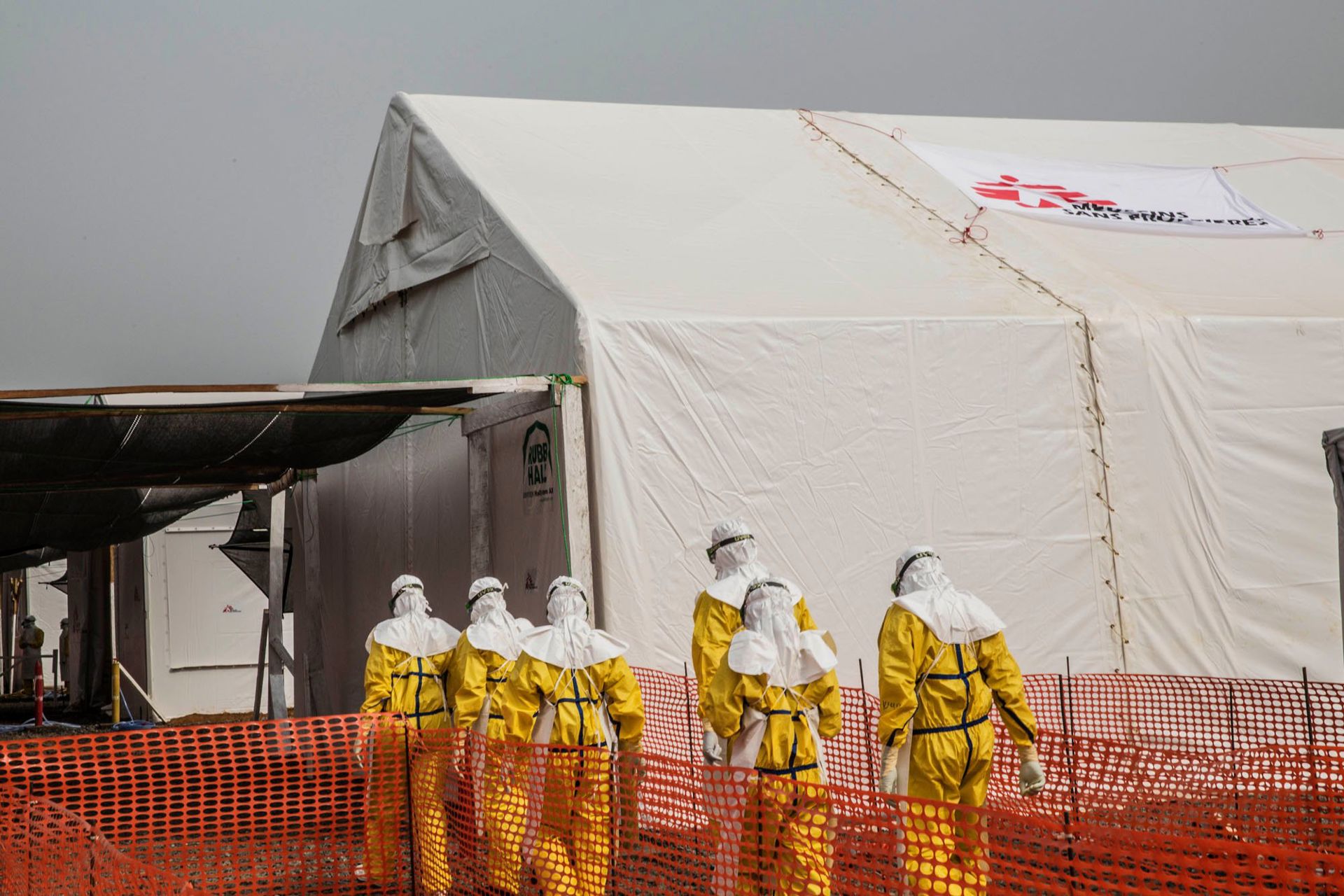In late November, Aminata Sankoh's mother started to fall ill. Living on the outskirts of Freetown, Sierra Leone, Aminata heard warnings about Ebola on the radio. But she didn't hesitate to care for her mother as she grew progressively sicker over the next seven days. By the end of the week, Aminata's mother died.
Within a week, both Aminata and her husband were hit with severe fever. "We went from vomiting to the toilet, vomiting to the toilet," Aminata recalls. Within one day, Aminata realized her family needed help. She called the toll-free 117 hotline, which dispatched an ambulance to her home within 24 hours. When the ambulance came, however, Aminata's husband was unwilling to go, despite her best efforts to convince him. Aminata decided to take her three children and go without him. The ambulance brought them to the Médecins Sans Frontières (MSF) Ebola Treatment Center (ETC) in downtown Freetown.
"Aminata was very ill when she arrived," Dr. Gerardo Muñoz Motiel remembers. "Her second day here, she couldn't get out of bed, with vomiting and diarrhea. We told Aminata, 'You need to fight; you need to drink; you need to eat.' "
Two of the children tested Ebola-negative and were discharged to a relative who cared for them. Her five-year old son, Ishmael* also tested positive for Ebola.
Gradually, Aminata's condition improved. After IV treatment and other supportive therapies, she was able to start feeding herself again and would walk, slowly and painfully, to shaded areas beside the treatment wards, where family members came to visit, separated by a low orange fence marking the safe two-meter distance.
Aminata's five year old son, Ishmael, remained in critical condition. Aminata stayed by his bedside, encouraging him to eat and drink. Slowly, Ishmael started improving, and Aminata expanded her focus to the other children in the ward.
Another five year-old boy lay in a nearby bed, without eating and drinking. Aminata saw that he needed support, just as her son had. Aminata took over his care, bathing the boy, and cajoling him to eat and drink. She reached out to the other children and even teenagers, encouraging them to eat, drink, and persevere. Using the MSF cell phone in the patient area, Aminata kept family members appraised of their loved one's conditions, especially parents of the young children.
As Aminata grew to know all of the patients in her Ebola-ward, she gave the medical team feedback as they conducted rounds, coming to the bedsides of children who weren't able to speak for themselves. "She advocated for everyone in the wards; she saved children's lives," said Dr. Xandra Rarden. Although Aminata was not yet considered an Ebola-survivor, she had reached the convalescent stage of the illness, caring for others as she regained strength.
Survivors play an important role in Ebola care. No Ebola-survivor has ever reported reinfection, giving these survivors the ability to provide care to Ebola patients without the constraints of full Personal Protective Equipment (PPE). Rather than being restricted to approximately one-hour shifts in stifling PPE, survivors can remain inside the patient areas for far longer, with only light protection.
"The Ebola Treatment Center can be a lonely and frightening place for people, especially children," said Dr. Gerardo Muñoz Montiel, "But having someone like Aminata in the wards can make a huge difference."
On Christmas Day, Aminata and Ishmael were discharged as survivors, while medical staff, hygenists, and other patients cheered. Donning a festive Christmas mask, Ishmael clung to his mother and his new toy car. Aminata waved to the patients in her ward, encouraging the youngest patient that his mother would come to see him discharged the following day.
Aminata's homecoming was bittersweet. While her family embraced her and neighbors celebrated her return, Aminata grieved for her husband, who sought help too late to survive. She remembers her motivation to survive in the ETC, "I asked God to let me live because my husband died and nine of my siblings had, too. I wanted to live for my children."
In Freetown, MSF has hired three survivors like Aminata to provide care for Ebola-confirmed children. An additional survivor supports the health promotion team, a living example of hope to families coming to visit their loved ones at the ETC.
By 31st Dec 2014, Ebola infected over 9,450 people in Sierra Leone, killing 2,760. MSF has constructed four 100-bed treatment centers in the country, treating 1,366 Ebola patients, with 732 survivors. A fifth center with will open in early January with a focus on a particularly vulnerable population, Ebola-positive pregnant women.
*The names of children have been changed




